Evening Primrose Oil For Hair Loss
Learn how this oil has traditionally supported hair health and prevented hair loss.
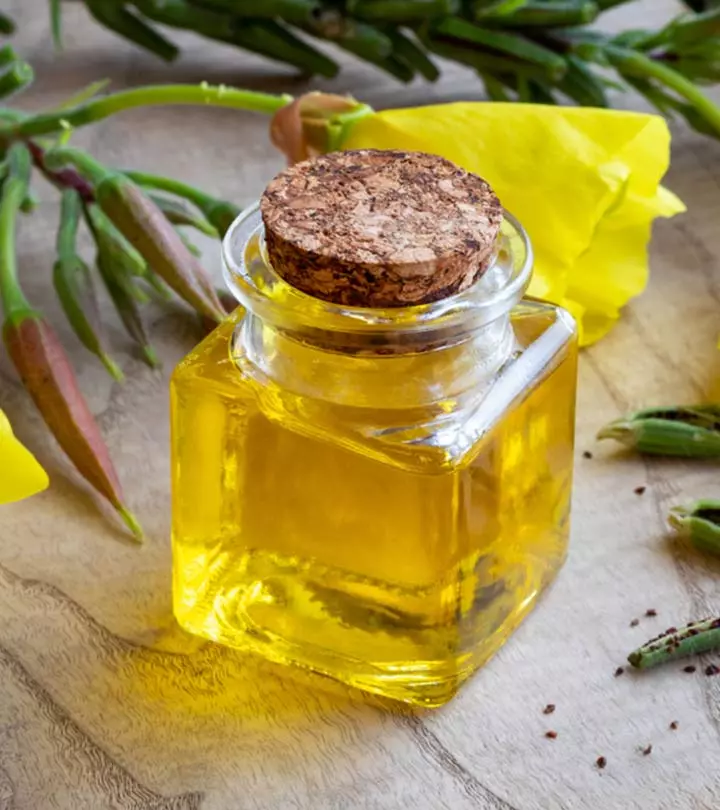
Image: Shutterstock
If you are planning to use primrose oil for hair, you have come to the right place. Here, we discuss all the benefits of primrose oil for thinning hair. Evening primrose oil has a great nutritional profile that can help hair regrowth. In addition, it has shown significant effectiveness in fighting alopecia areata, an autoimmune condition that causes hair loss. Over 2.1% of adults suffer from this condition in the USA (1). This article discusses how primrose oil helps with hair regrowth and more. Keep scrolling to learn more about this natural remedy!
In This Article
What Is Evening Primrose?
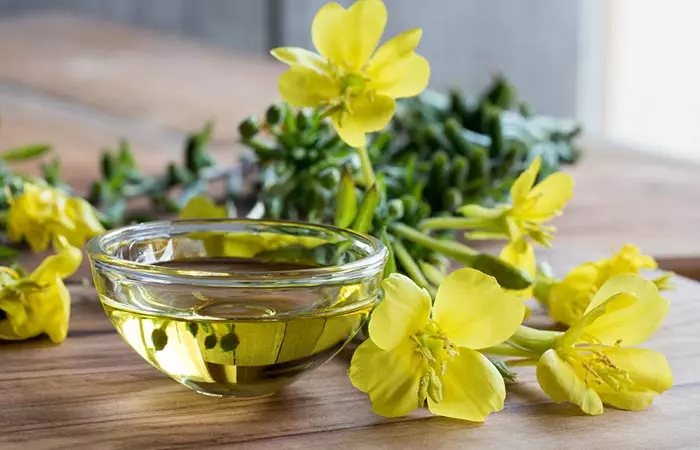
Evening primrose is a flowering plant often referred to as night willowherb. It is most prevalent in the wild in Europe and North America but has begun to be available in compatible climates on six continents over the years.
Evening primrose oil for the skin is popular due to its ability to help maintain skin health and treat various conditions. Over the years, this oil has come to be known to have therapeutic properties, leading to its use in all kinds of lifestyle-enhancing products. This oil contains gamma-linolenic acid (GLA) and other fatty acids (2). GLA is known as an effective solution for a number of skin issues, such as acne and eczema.
The Native Americans supposedly used evening primrose for dressing wounds and treating skin inflammation. The plant leaves are said to have been used for sore throats and gastrointestinal complaints (3). Evening primrose oil is now considered effective for atopic treating dermatitisi A common condition caused due to allergic reaction that may result in itchy, dry skin, or a rash. , premenstrual syndromei A condition characterized by mood swings, food cravings, tender breasts, and fatigue that occur in women between ovulation and a period. , rheumatoid arthritisi A chronic condition where the immune system attacks the body's tissues in the joints and causes inflammation. , and a score of other issues.
 Trivia
TriviaBut, does it have any effect on hair growth? Find out in the next section!
Key Takeaways
- Evening primrose oil contains arachidonic acid which has been shown to elongate hair shafts in humans.
- It reduces hair damage and increases antioxidants which can prevent hair loss.
- You can take primrose oil as an oral supplement or use it topically.
Benefits Of Evening Primrose Oil For Hair Growth
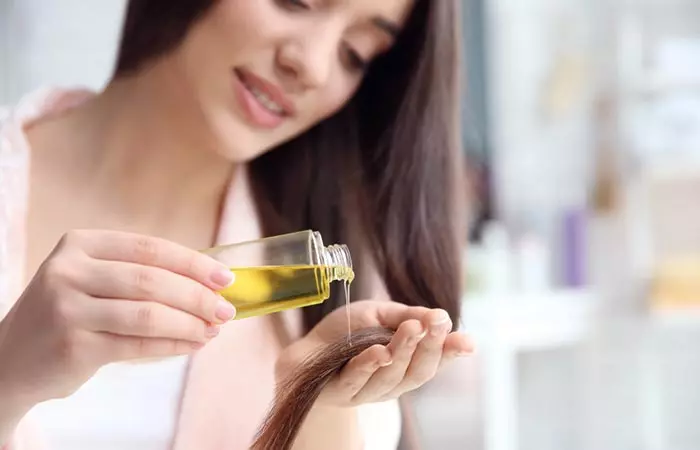
The use of evening primrose oil for hair regrowth is not a recent trend and has been around for years.
1. Promotes Shaft Elongation
For any oil that promotes hair regrowth, the impact depends squarely on its constituents.
Evening primrose oil contains arachidonic acid. Arachidonic acid has been found to elongate the hair shafts in humans and promote hair growth in mice (4).
2. Reduces Hair Damage
Inflammation of the scalp is a major reason for hair loss.
Some research has been able to show that the sterols isolated from evening primrose oil can help reduce inflammation on the scalp (5). Sterols generally lower the cholesterol in the human body, which reduces inflammation.
3. Improves Speed Of Hair Regrowth
One of the significant constituents of evening primrose oil is tocotrienol or vitamin E. An experimental study conducted in 2010 found that taking vitamin E supplements positively impacts hair regrowth in humans (6). Evening primrose oil, if taken as a supplement, can be really effective in increasing the vitamin E level in your body. This vitamin E can be essential in increasing the speed of hair regrowth as well.
Matthew, a blogger, shared his experience of taking evening primrose oil for balding. He writes, “I currently take Evening Primrose Oil for its high amount of GLA omega-6 fatty acids, these work by inhibiting the creation of DHT. I also take resveratrol for anti-aging.” He also added about the mechanism, “Both of these work by improving the health of our cells and their defenses against inflammation. This is important as inflammation increases the amount of DHT (dihydrotestosterone), the primary reason behind male-pattern-baldness.” He further mentioned that he exercised and took both resveratrol and evening primrose oil for 4 months, stating, “The results have been great, with my hair becoming generally thicker, my scalp being less itchy, dry and flaky; and best of all, I have quite a few new hairs along my frontal hairline (i).”
4. Nourishes The Skin
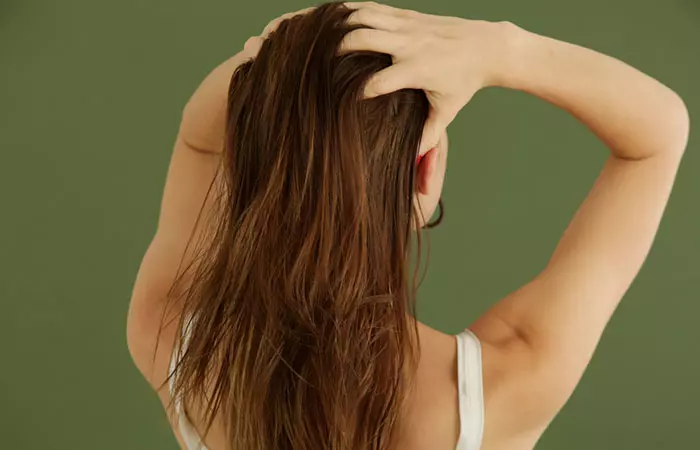
Evening primrose oil is known to have essential nutrients and antioxidants that do not improve the health of your scalp and hair but also nourish the skin (2). When applied to your head, it may improve scalp health and promote the growth of new hair. Massaging the scalp may also improve the blood flow in the scalp, which could potentially aid hair growth (7).
5. Increases Antioxidants
Low levels of antioxidants in the scalp cause hair loss (8). Evening primrose oil contains antioxidants that can address this issue (2). Antioxidants are not just essential for the regrowth of hair but also help address a number of other physiological issues, such as skin dryness.
It is evident that the benefits of evening primrose oil for hair growth are many, but how does one incorporate it into their daily hair care routine? Find out in the next section!
How To Use Evening Primrose Oil For Hair Growth
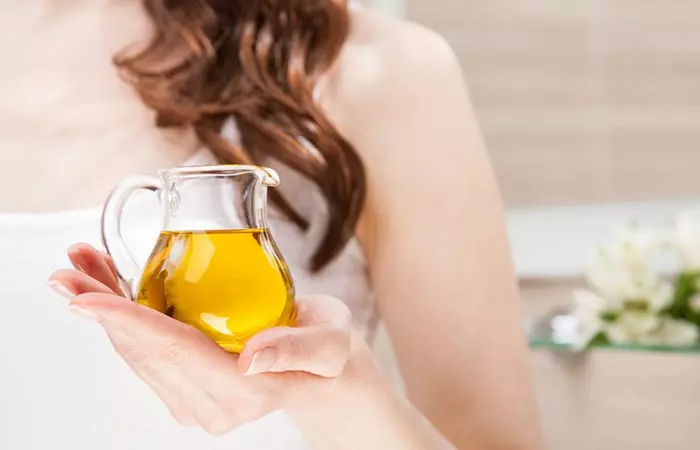
You can use evening primrose oil in two ways:
- As an oral supplement
- As a topical application
How you choose to use evening primrose oil mainly depends on your hair fall issue. If you believe your hair fall is related to a physiological or hormonal condition, the intake of an evening primrose oil supplement is generally preferred. Similarly, if you feel your hair fall is related to a medication you are taking or because of a hereditary problem, taking evening primrose orally might be a better option for hair loss treatment.
On the other hand, if you feel your hair loss is connected to scalp issues such as inflammation, itching, or dryness, you should go for topical application of evening primrose oil.
I. Evening Primrose Oil Supplement
If you are taking evening primrose oil as a herbal supplement, you must make sure that you take it soon after a meal and not on an empty stomach. Be sure to consume no more than 4-6 grams of evening primrose oil in a day. The evening primrose oil dosage for hair loss repair can vary from person to person. If you believe you need a higher dosage, consult a doctor first. Even if the dosage is not high, experts generally do not recommend that you take any supplements without a recommendation from a medical practitioner.
II. Topical Application Of Evening Primrose Oil
Topical application is an effective way of reaping evening primrose oil’s health benefits. A significant difference between evening primrose oil and essential oils is that you do not need to dilute evening primrose oil. However, before you start using it daily, you may wish to do a patch test to check if it works for you or if it causes any adverse reaction. To do a patch test, simply apply the oil to a small area on your forearm and cover it for 24 hours. If you don’t experience any redness or irritation, you can continue using evening primrose oil.
For daily application of evening primrose oil, you need to follow the following steps.
- Ensure that your hair is completely dry. If you intend to apply it after a bath, dry your hair entirely with a blowdryer before you start applying it.
- Take some oil and rub it between your palms. Don’t pour the oil directly onto the scalp.
- Massage the oil into your hair and scalp.
- The oil must remain on your head for at least 30 minutes after the massage. You can also leave it on for two hours.
- Wash the oil out either with a mild shampoo.
III. Combining Evening Primrose Oil With Other Oils
You can mix primrose oil with other nourishing oils like coconut or jojoba. Coconut oil is famous for its deep moisturizing properties, tackling dry scalp issues (9). Jojoba oil, on the other hand, hydrates your locks and aids hair growth (10). By combining evening primrose oil with these carrier oils, you create a powerhouse treatment that targets both scalp health and hair growth.
 Quick Tip
Quick TipNow, let’s talk about the side effects of evening primrose oil.
Side Effects Of Evening Primrose Oil
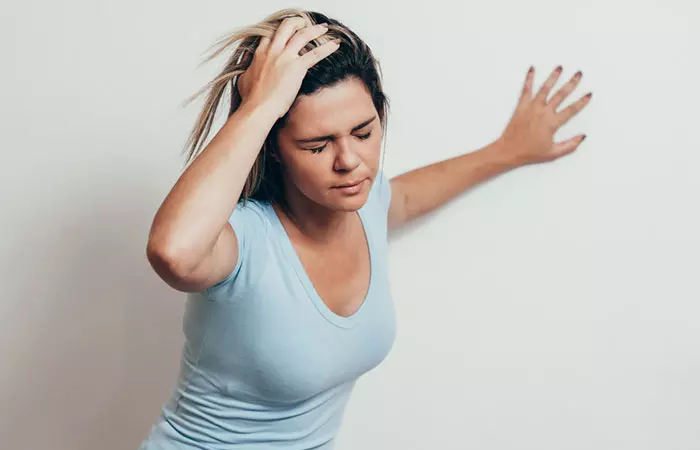
The use of evening primrose oil is not without the risk of a few benign side effects. Generally, it is always recommended that you consult your doctor before you commence any new treatment.
You should not take evening primrose oil, at least without consulting a doctor, if any of the following applies to you.
- You are pregnant. Though there is a lack of research, taking up to 6.5 g of evening primrose oil during pregnancy has been reported to be harmful. Do not take evening primrose supplements, especially if you are near the end of your pregnancy (11).
- If you have epilepsy. There has previously been concern around people with epilepsy taking evening primrose oil as it has been reported to trigger seizures (12).
- If you have schizophrenia. In people with schizophrenia, treatment with GLA and vitamin E has been found to be associated with an increase in seizure probability (13). Both of these components are found in evening primrose oil.
In addition to these conditions, evening primrose oil can also react with a wide variety of medicines due to the presence of vitamin E in it (14).
- Evening primrose oil has antioxidants that may not allow cholesterol medication to work since it blocks HDL cholesterol.
- You should not use evening primrose oil if you are taking any kind of anticoagulant or blood-thinning medication.
- If you are undergoing chemotherapy or radiotherapy, no kind of antioxidant intake is recommended. Vitamin E is an antioxidant and is, hence, a strict no-no.
When used as a stand-alone solution, evening primrose oil does not have any side effects. As is evident from the above information, the side effects are a result of its interaction with other medications. It may also cause allergic reactions. You should opt to see a dermatologist if this happens.
When Should You See A Dermatologist?
Consult a dermatologist if you feel that evening primrose essential oil has not made any impact after eight weeks since you started using it, or if you seem to be experiencing new and unexpected hair loss. You should also opt to see your dermatologist if you experience undue skin dryness, itching, rashes, or other skin-related problems. These could be due to an allergic reaction to this oil or due to other underlying skin issues.
Evening primrose oil contains many components that help strike the right hormonal balance and aid hair growth. It can be beneficial, either taken as a supplement or used topically. Regardless of any approach you select, be sure you apply a safe product to your hair. For example, you should take it orally if you have hormonal issues, but massage the oil topically if you have an irritated or itchy scalp. The oil has no side effects, but you should consult a doctor before using it if you are on other medications. Also, if you are new to evening primrose oil, test a small amount on the back of your hand or the inside of your arm to be sure it doesn’t bother your skin. Start using this oil to see how it can help you grow your hair!
Infographic: 5 Important Benefits of Evening Primrose Oil
Primrose oil was used by Native Americans to treat wounds and fight dermatitis. It is rich in antioxidants and vitamin E that help prevent skin conditions like acne and fight hair fall. We have rounded up the 5 reasons for adding evening primrose oil to your hair care routine. Check out the infographic below to know more!
Some thing wrong with infographic shortcode. please verify shortcode syntaxFrequently Asked Questions
Can evening primrose oil be used on all hair types?
Yes, evening primrose oil can be used on all hair types, especially curly or coarse locks. The oil helps reduce frizz and enhance curl definition. It also moisturizes curly locks, increasing hair elasticity. Just be sure to adjust the amount based on your hair’s needs to avoid weighing it down.
Does evening primrose oil block DHT?
Evening primrose oil contains omega-6 fatty acids like gamma linoleic acid that may inhibit DHT.
Can I take biotin and evening primrose oil together?
Yes, you can take biotin and evening primrose oil together. However, if you are concerned, you should consult a dermatologist first.
What happens if you take evening primrose oil everyday?
Taking evening primrose oil (as supplements or otherwise) daily can be safe and beneficial if you stick to the recommended dosage.
What does evening primrose do for hormones?
It can regulate hormonal levels and functioning, improving your skin and hair health.
How long does it take for evening primrose oil to work?
It varies, depending on your skin type and issues. While some can see the changes within the first week of use, others may notice changes only after 6-7 weeks.
Does evening primrose raise estrogen?
Yes, it may raise estrogen levels as it has phytoestrogenic properties.
Does evening primrose oil make you tired?
No, evening primrose oil does not make you feel tired. In fact, using evening primrose oil may help reduce fatigue and improve your quality of life (14).
Can you take vitamin D and evening primrose oil together?
Yes, you can take vitamin D and evening primrose oil as no significant interactions have been reported between the two. However, since more studies are required to prove the safety of using them together, it is best to consult a doctor before using them.
Can you take vitamin B12 and evening primrose oil together?
Yes, you can use them together as they do not cause any negative interactions when combined.
Illustration: Evening Primrose Oil For Hair Loss
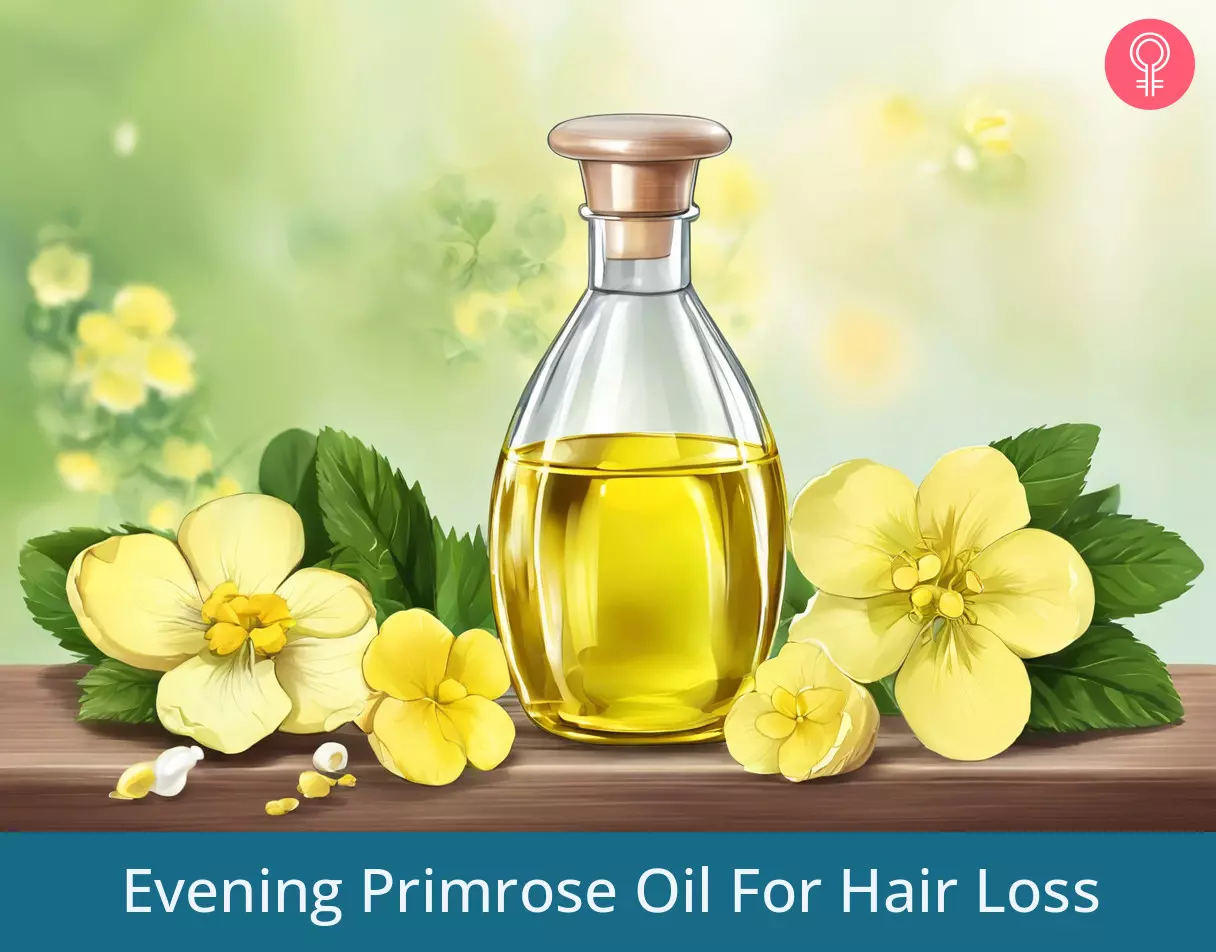
Image: Stable Diffusion/StyleCraze Design Team
See the amazing results of using evening primrose oil for hair loss in just 28 days! Watch this video to find out how it works.
Personal Experience: Source
StyleCraze's articles are interwoven with authentic personal narratives that provide depth and resonance to our content. Below are the sources of the personal accounts referenced in this article.
i. How I’m keeping my hair from baldinghttps://matthewallden.medium.com/how-im-keeping-my-hair-from-balding-4c2f64b25886
References
Articles on StyleCraze are backed by verified information from peer-reviewed and academic research papers, reputed organizations, research institutions, and medical associations to ensure accuracy and relevance. Read our editorial policy to learn more.
- Lifetime incidence risk of Alopecia Areata estimated at 2.1 percent by Rochester Epidemiology Project, 19902009.
https://www.ncbi.nlm.nih.gov/pmc/articles/PMC3961558/ - Evening Primrose (Oenothera biennis) Biological Activity Dependent on Chemical Composition.
https://www.ncbi.nlm.nih.gov/pmc/articles/PMC6116039/ - Evening Primrose Oil.
https://www.nccih.nih.gov/health/evening-primrose-oil - Role of Arachidonic Acid in Promoting Hair Growth.
https://www.ncbi.nlm.nih.gov/pmc/articles/PMC4737836/ - The sterols isolated from Evening Primrose oil modulate the release of proinflammatory mediators.
https://pubmed.ncbi.nlm.nih.gov/22819447/ - Effects of Tocotrienol Supplementation on Hair Growth in Human Volunteers.
https://www.ncbi.nlm.nih.gov/pmc/articles/PMC3819075/ - Massage therapies.
https://www.ncbi.nlm.nih.gov/pmc/articles/PMC1071543/ - Antioxidant enzymes and lipid peroxidation in the scalp of patients with alopecia areata.
https://pubmed.ncbi.nlm.nih.gov/12088608/ - Hair Oils: Indigenous Knowledge Revisited
https://pmc.ncbi.nlm.nih.gov/articles/PMC9231528/ - Jojoba Oil: An Updated Comprehensive Review on Chemistry, Pharmaceutical Uses, and Toxicity
https://pmc.ncbi.nlm.nih.gov/articles/PMC8197201/ - Evening primrose oil.
https://pubmed.ncbi.nlm.nih.gov/20000302/ - Complementary therapies.
https://epilepsysociety.org.uk/living-epilepsy/wellbeing/complementary-therapies#:~:text=Past%20reports%20have%20warned%20that,epilepsy%20and%20your%20current%20treatment. - The Role of Vitamins and Minerals in Psychiatry.
https://www.ncbi.nlm.nih.gov/pmc/articles/PMC3046018/ - Vitamin E.
https://ods.od.nih.gov/factsheets/vitamine-healthprofessional/#h8 - Evening primrose oil (Efamol) in the treatment of children with atopic eczema
https://pubmed.ncbi.nlm.nih.gov/3048953/#:~:text=Good%20therapeutic%20results%20have%20been,desaturase%20metabolite%20of%20linoleic%20acid.
Read full bio of Dr. Shruti Chavan
Read full bio of Arshiya Syeda
Read full bio of Anjali Sayee
Read full bio of Swathi E





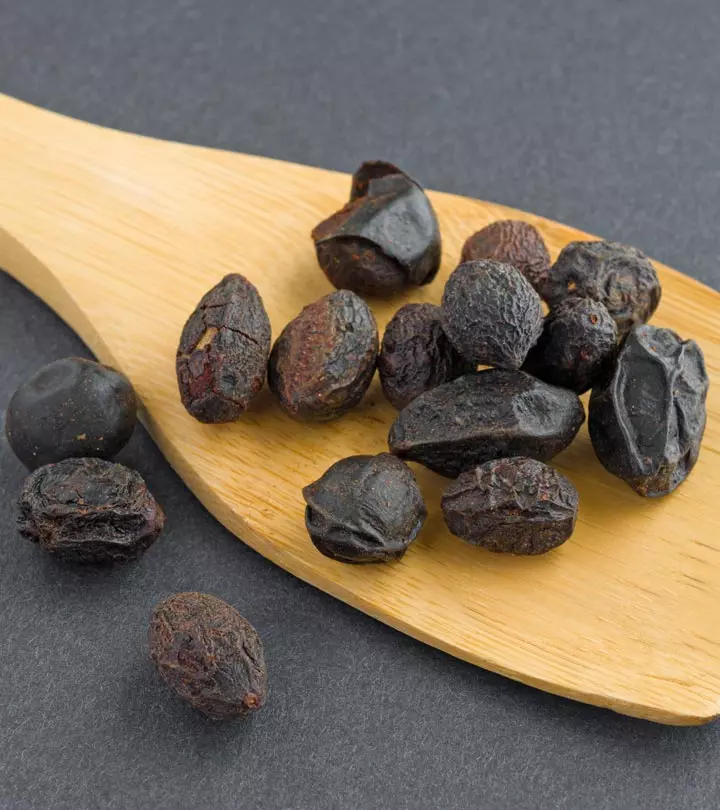
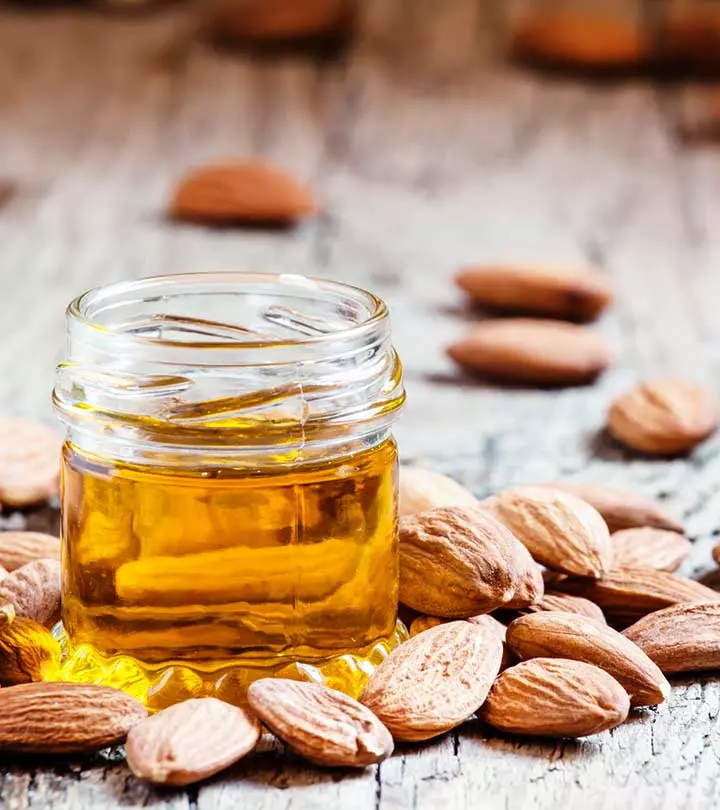
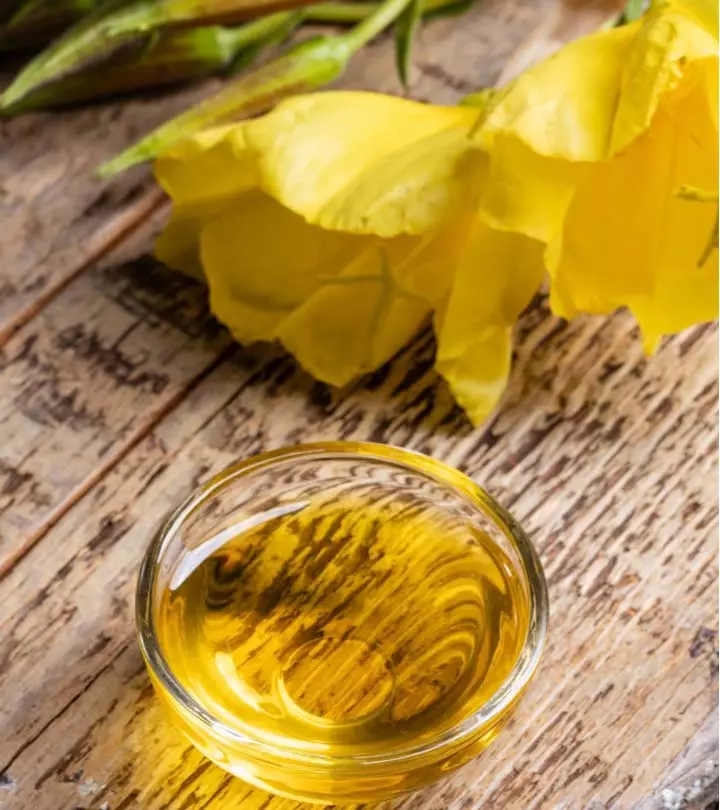
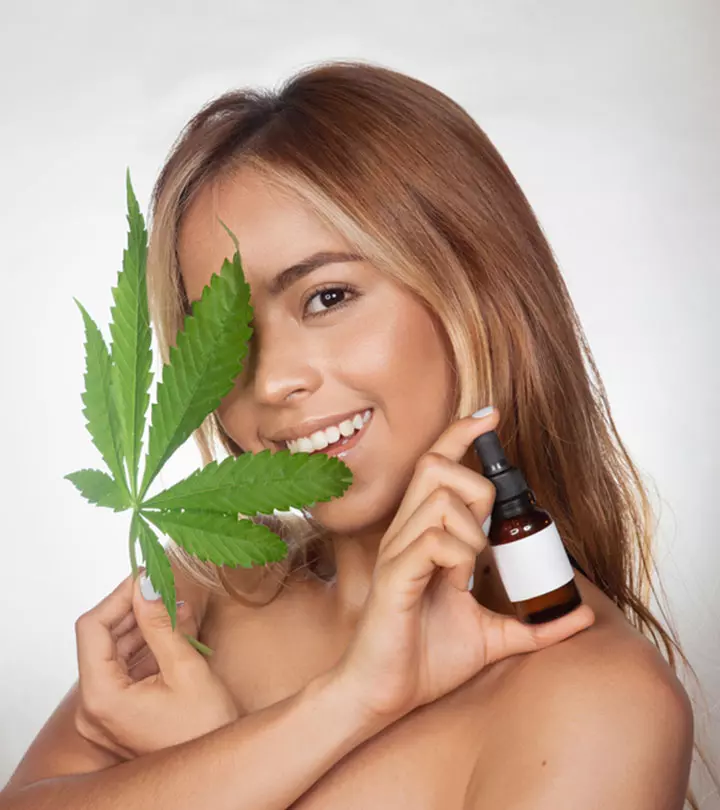
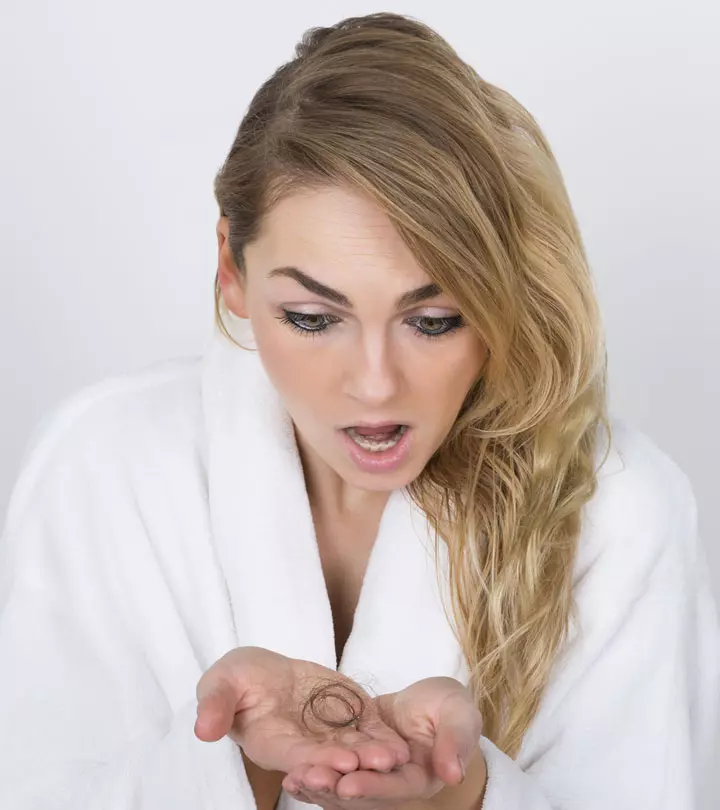
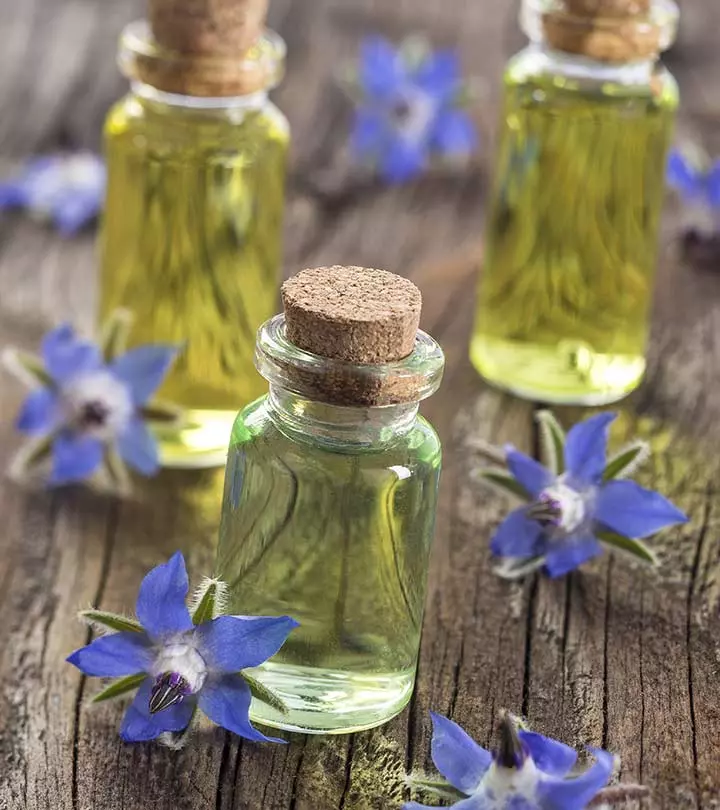
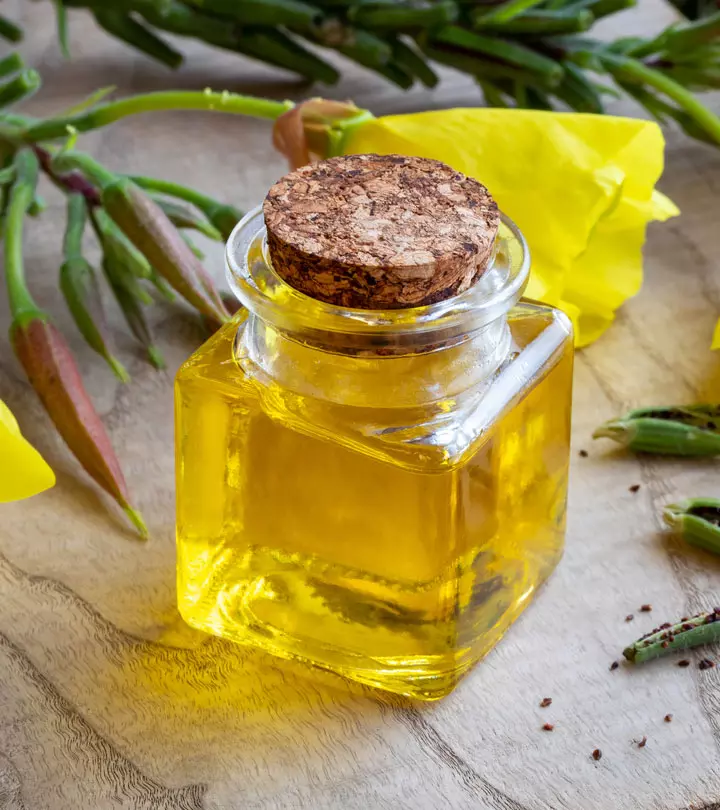
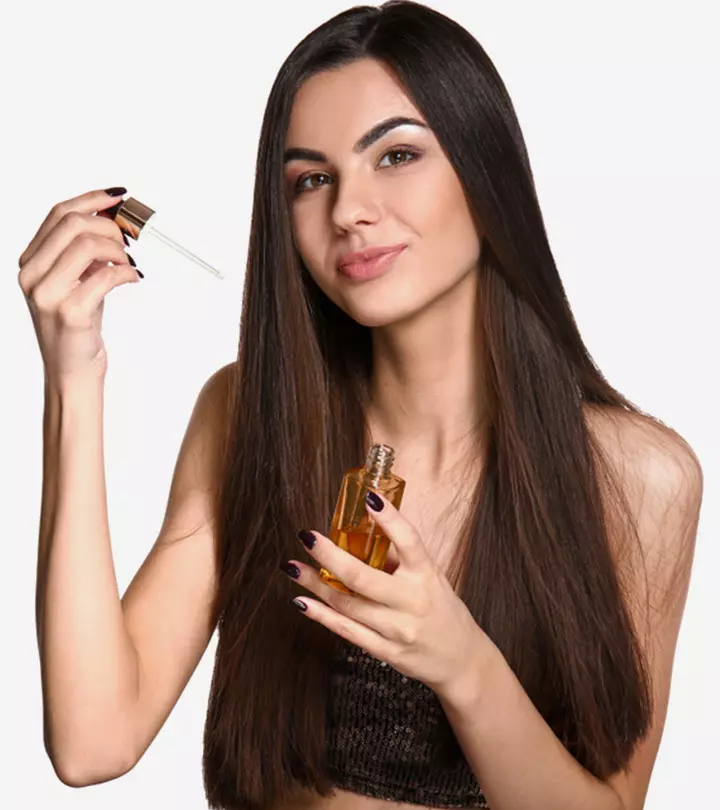
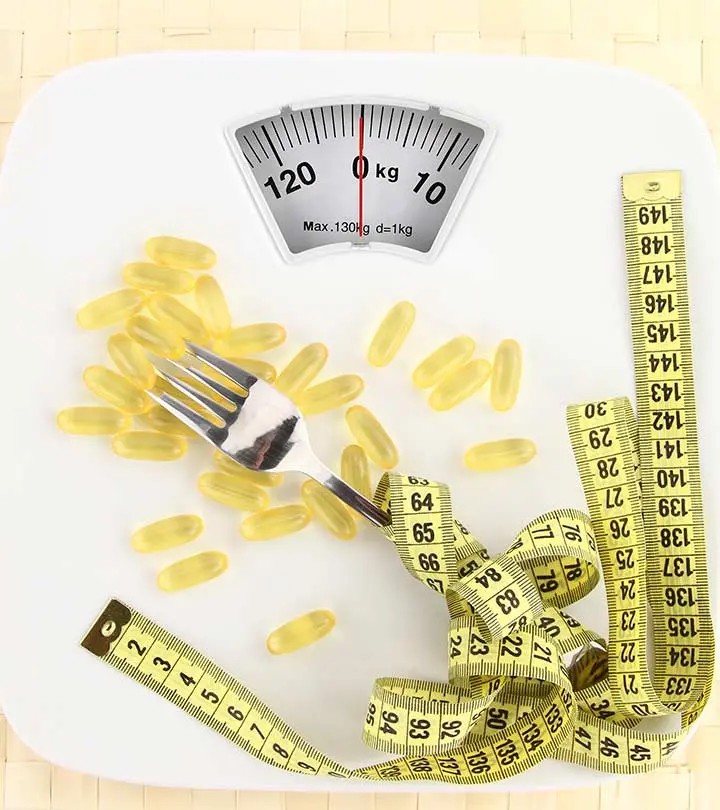
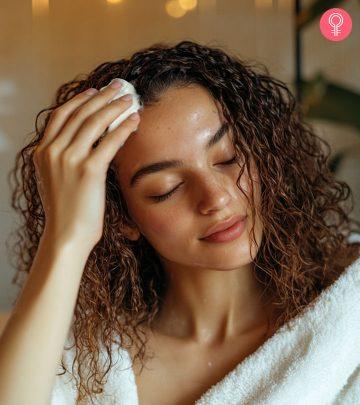
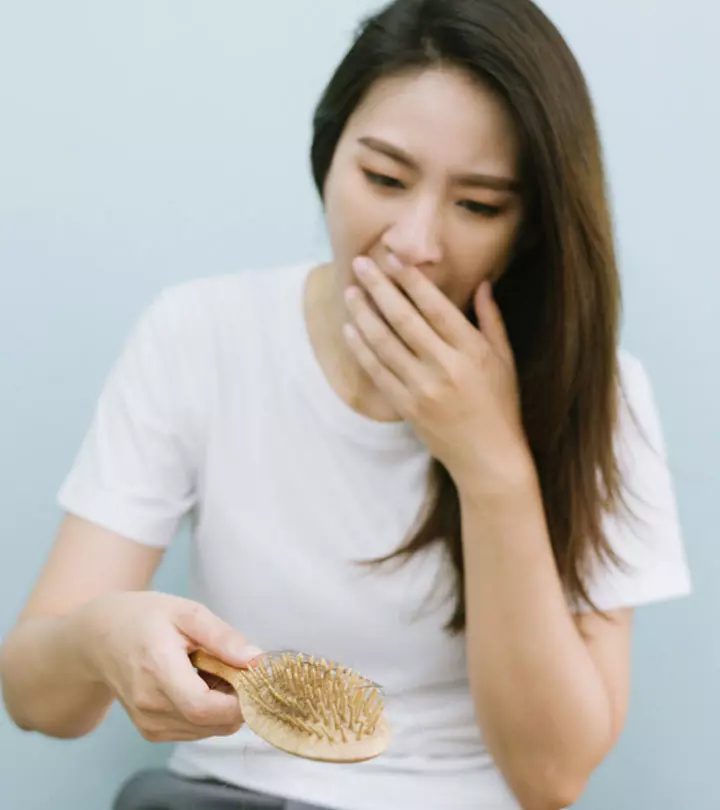

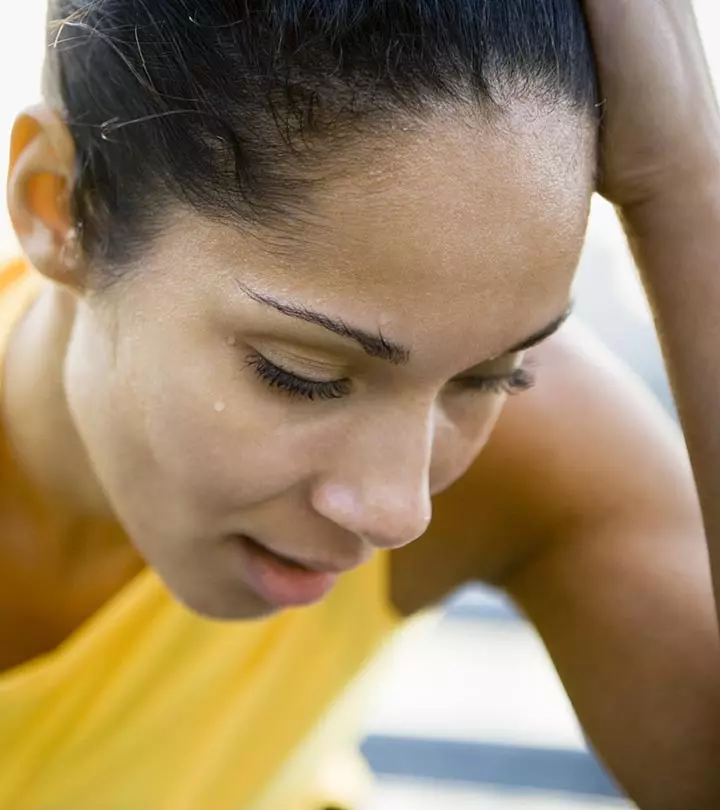

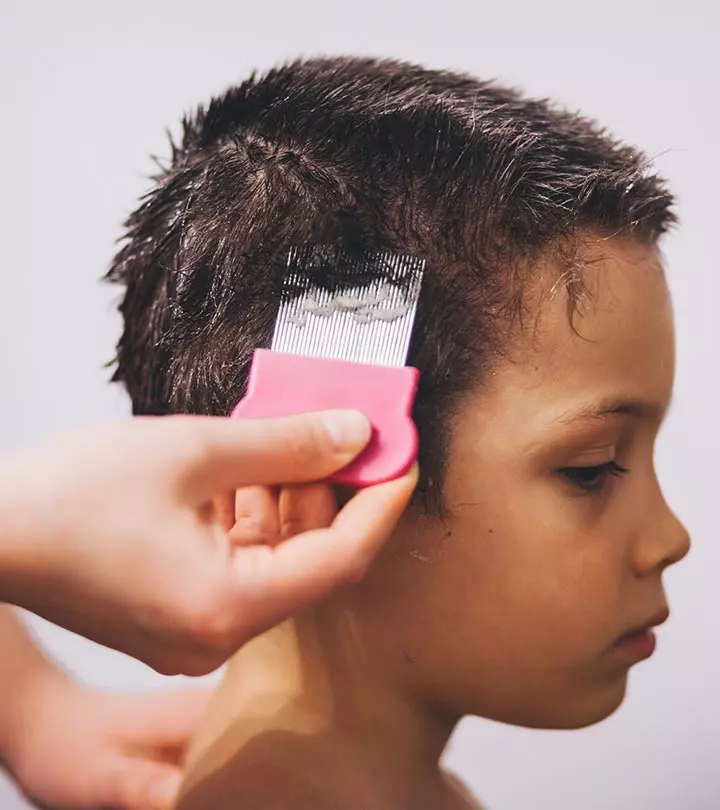
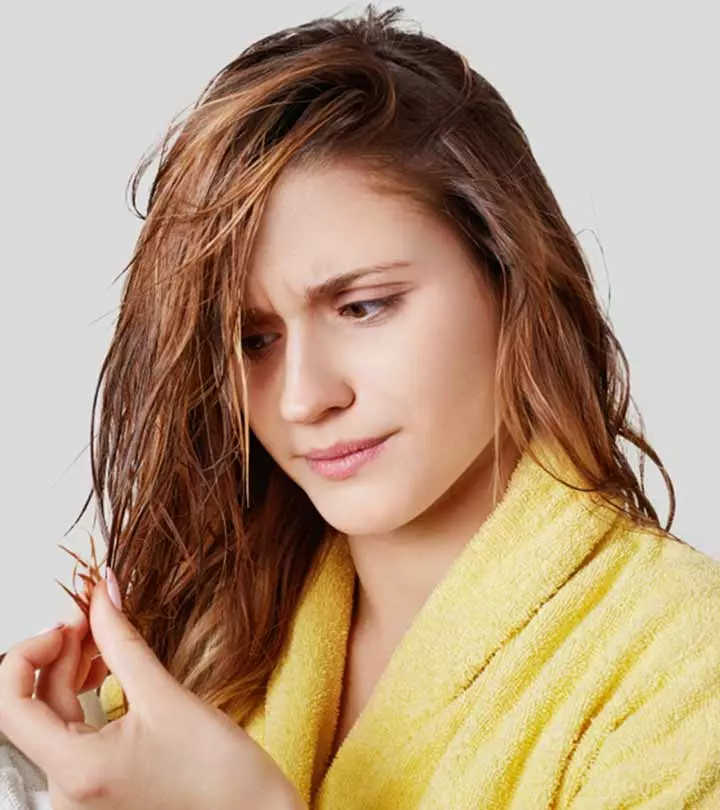

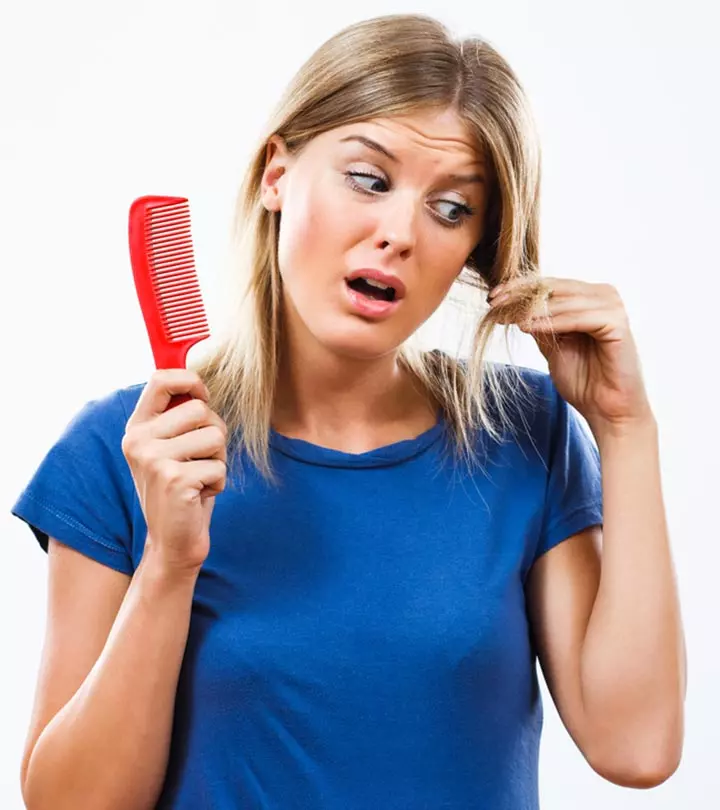
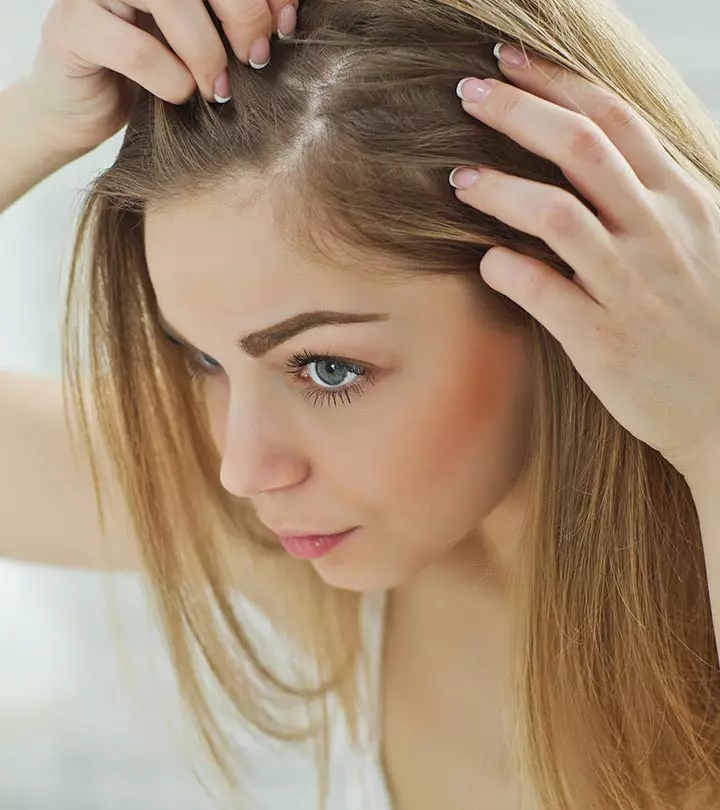

Community Experiences
Join the conversation and become a part of our empowering community! Share your stories, experiences, and insights to connect with other beauty, lifestyle, and health enthusiasts.